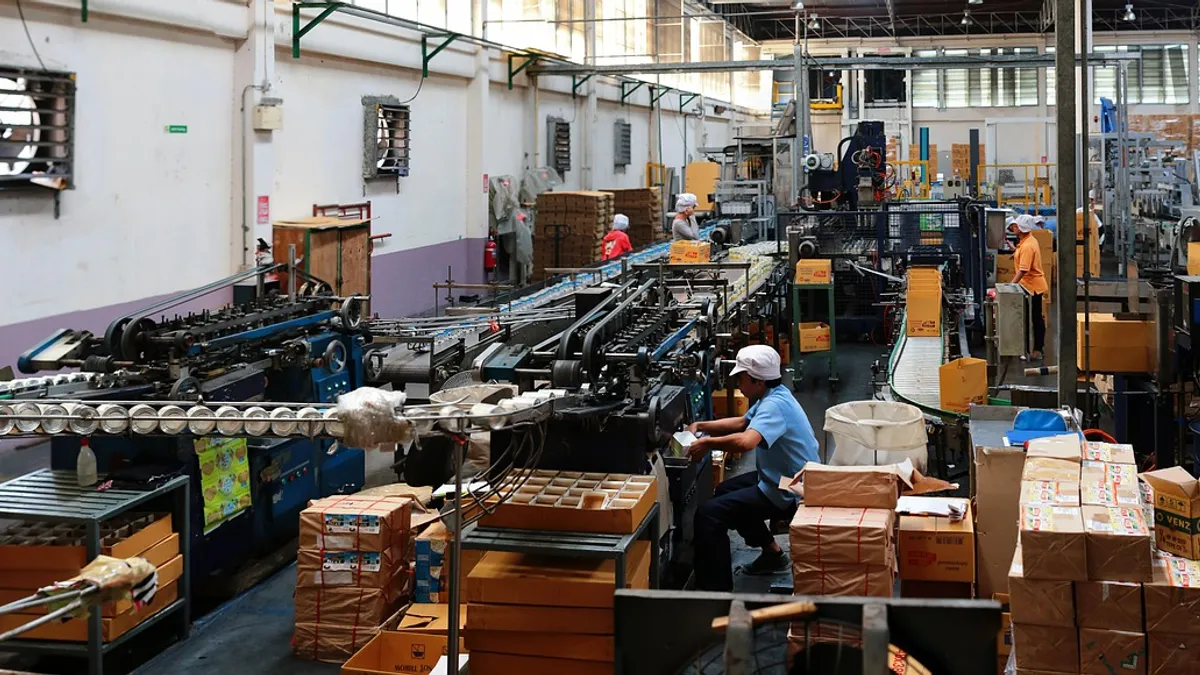Dive Brief:
- China Labor Watch (CLW) has uncovered several violations at the Hengyang Foxconn factory in China, which manufactures products for Amazon, including the Kindle, Echo Dots and tablets, the group said in a report.
- In CLW's investigation, it found dispatch workers, who go through less training and don't receive sick leave or social insurance, make up 40% of the workforce — well above the legally mandated 10%. In addition, CLW found dormitories for workers do not have emergency exits or fire extinguishers.
- In a statement e-mailed to Supply Chain Dive, Amazon said it audited the factory in March 2018 and identified "two issues of concern."
Dive Insight:
The first step to solving labor violations begins with awareness of the issues. Visibility into supplier operations can sometimes be cloudy, especially beyond the first tier.
But in the case of the Foxconn factory, Amazon wasn't in the dark. The e-commerce giant conducted an audit of the factory in March of this year and said it found two issues.
Amazon, however, did not relay those findings to CLW after the group sent a letter to Jeff Bezos in early May outlining its discoveries of violations at the factory.
"We received a response [from Amazon], but it did not mention that the company was aware of the labor violations at the factory," Elaine Lu, program officer at CLW, told Supply Chain Dive in an e-mail. "It was only after the publication of the report that Amazon issued a statement saying they had found issues during an audit of the factory in March."
The timing of events indicates Amazon had visibility into its supply chain but was not necessarily transparent with all interested parties. CLW said the e-commerce giant is "secretly oppressing its supplier's workers."
Amazon has requested "a corrective action plan" from Foxconn "to remediate the issues," and following CLW's report, Foxconn said it will carry out its own investigation of the factory. But CLW said the burden of responsibility should not fall solely on Foxconn.
"Amazon has the ability to not only ensure its supplier factories respects the rights of workers but also that there is equal pay for equal work," CLW said in its report.














